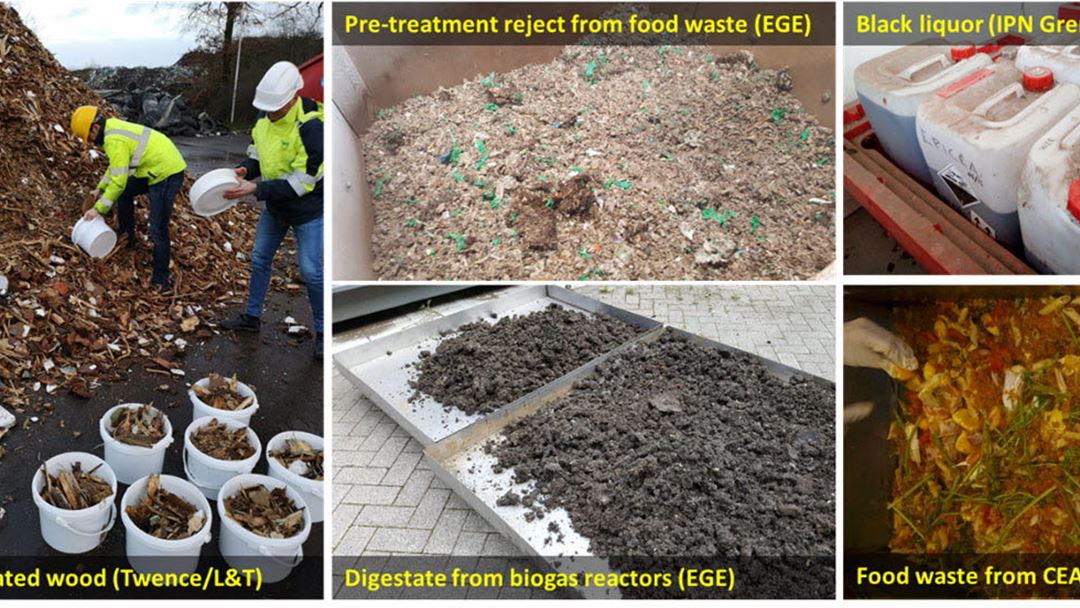M18 Project Review with the EU
WASTE2ROAD has successfully passed through the first checkpoint, the M18 Project Review.

In the first 18 months, the partners have defined the waste materials to be tested in the project. These represent different types of waste from three basic categories: contaminated wood, black liquor and food residues. After pre-treatment, the waste samples undergo conversion to bio-oils by one of the conversion technologies (pyrolysis or HTL). The selection of the conversion technology is dependent mainly on the moisture content of the feedstock. Pyrolysis is best suited for the conversion of dry feedstocks (< 5 % moisture), while HTL is ideal for processing high-moisture materials. Up to now, several different types of waste materials have been tested in lab-scale experiments for both pyrolysis and HTL. Among the waste materials tested are samples of contaminated wood, food waste collected from restaurants, digestate and rejects recovered from biogas production, and roadside grass.
The photographs show the variety of waste materials tested in the project so far. The plan forward is to produce sufficient amounts of bio-oils from the most promising waste streams for lab-scale and pilot-scale co-refining experiments and to gather data for further process development and modelling, life cycle costing and development of the value chains.
